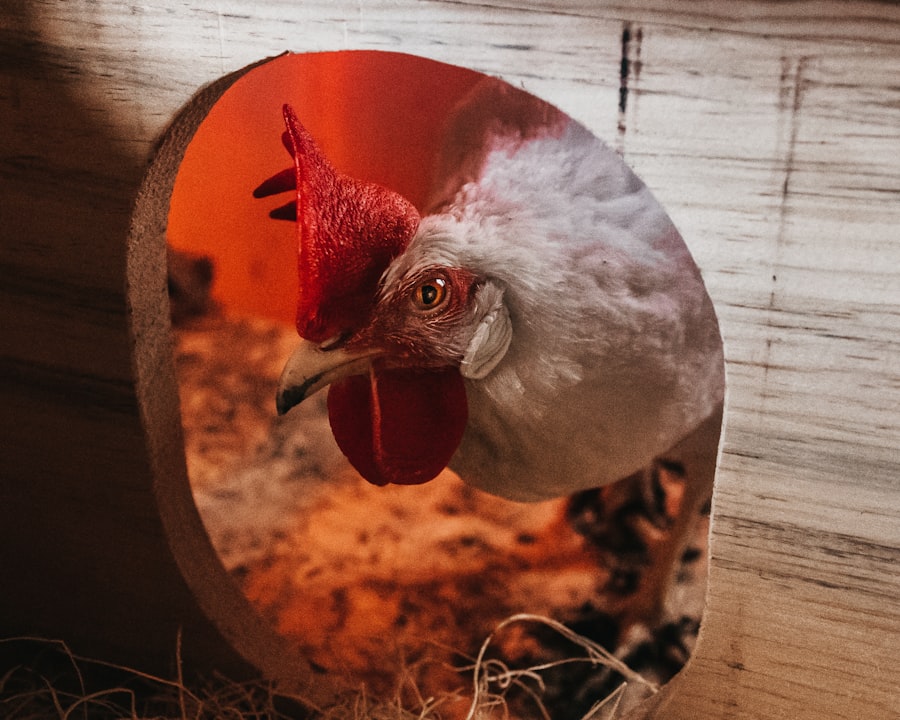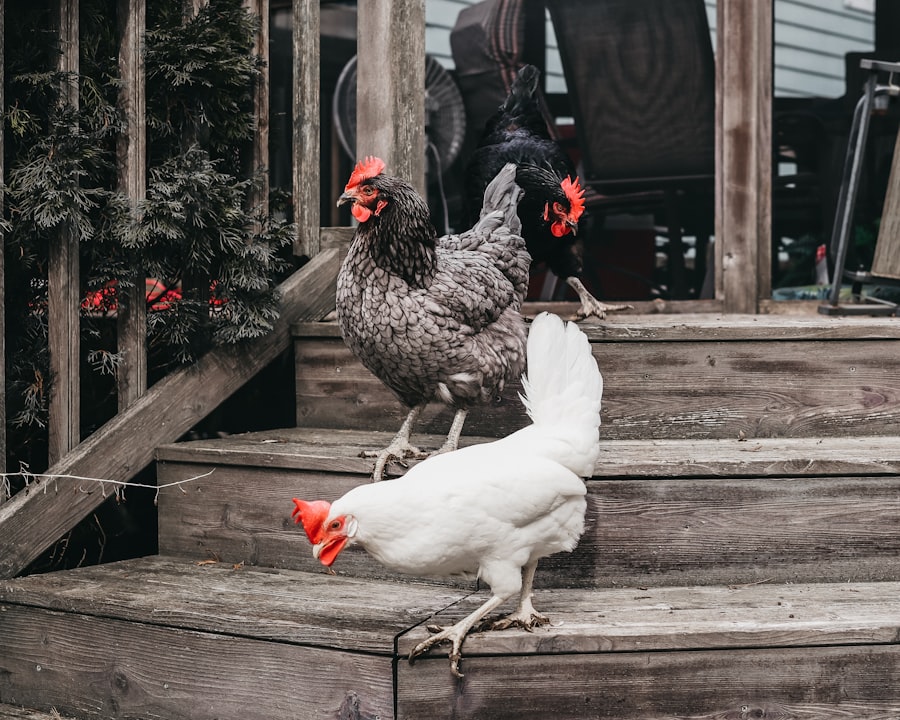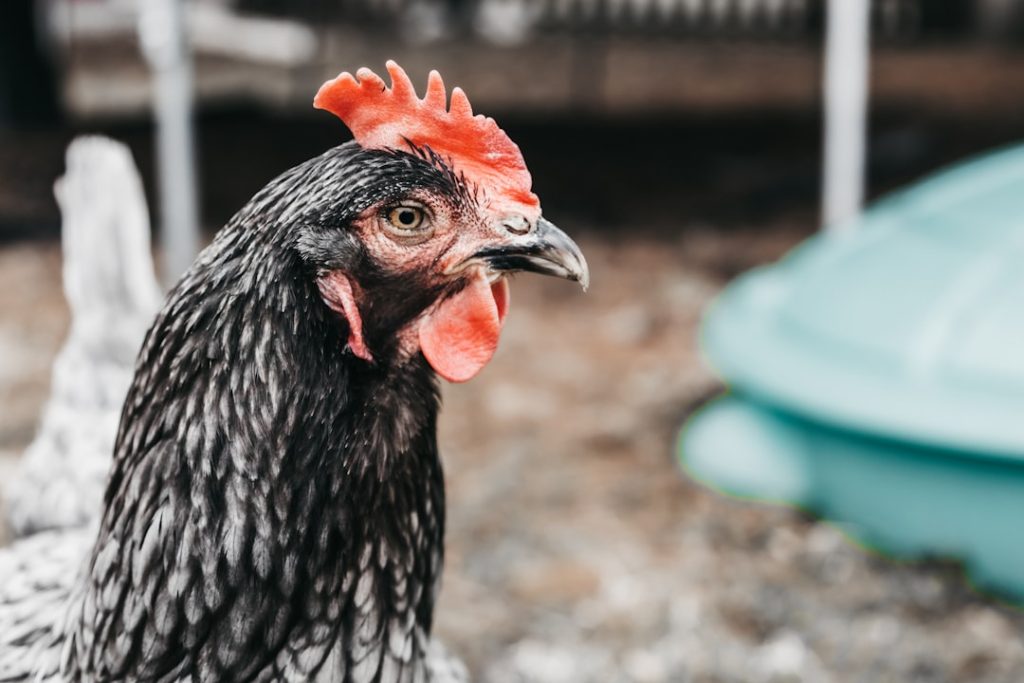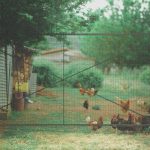Keeping chickens in the UK requires adherence to specific regulations and guidelines set by the Department for Environment, Food & Rural Affairs (DEFRA). These rules are designed to ensure the health and welfare of chickens, as well as to protect the environment and public health. DEFRA’s regulations cover various aspects of chicken keeping, including:
1.
Housing and space requirements: Chickens must have adequate shelter and sufficient space to move freely. 2. Health and welfare standards: Keepers must provide proper nutrition, veterinary care, and protection from predators.
3. Biosecurity measures: Practices to prevent the spread of diseases among flocks and to humans. 4.
Licensing and registration: Depending on the number of birds kept, keepers may need to register with DEFRA. 5. Feed and water provision: Clean water and appropriate feed must be available at all times.
6. Waste management: Proper disposal of manure and other waste to prevent environmental contamination. 7.
Record-keeping: Maintaining records of flock health, treatments, and egg production. Chicken keepers must familiarize themselves with these regulations to ensure compliance and provide optimal care for their birds. Failure to follow these guidelines can result in penalties and may compromise the health of the chickens and the surrounding community.
Table of Contents
- 1 Requirements for Keeping Chickens in the UK
- 2 Housing and Space Requirements for Chickens
- 3 Health and Welfare Standards for Chickens
- 4 Biosecurity Measures for Chickens
- 5 Licensing and Registration for Chicken Keepers
- 6 Penalties for Non-Compliance with DEFRA Regulations
- 7 FAQs
- 7.1 What are DEFRA regulations on keeping chickens?
- 7.2 Do I need to register my chickens with DEFRA?
- 7.3 What are the housing requirements for chickens according to DEFRA regulations?
- 7.4 What are the welfare requirements for chickens according to DEFRA regulations?
- 7.5 What are the biosecurity requirements for keeping chickens according to DEFRA regulations?
- 7.6 What should I do if I suspect my chickens are sick?
Key Takeaways
- DEFRA regulations on keeping chickens in the UK aim to ensure the welfare and biosecurity of poultry.
- Requirements for keeping chickens in the UK include registering with DEFRA, providing suitable housing and space, and maintaining health and welfare standards.
- Housing and space requirements for chickens include providing adequate shelter, space for exercise, and protection from predators.
- Health and welfare standards for chickens involve providing proper nutrition, access to clean water, and regular veterinary care.
- Biosecurity measures for chickens include preventing contact with wild birds, controlling access to the premises, and maintaining good hygiene practices.
Requirements for Keeping Chickens in the UK
Suitable Housing for Chickens
In the UK, chicken keepers must ensure that their birds have access to suitable housing that provides protection from predators, adverse weather conditions, and disease. The housing should also provide adequate space for the chickens to move around and exhibit natural behaviors such as scratching and dust bathing.
Health and Welfare Standards
Chicken keepers must adhere to health and welfare standards to ensure that their birds are kept in a healthy and humane manner. This includes providing appropriate nutrition, access to clean water, and regular veterinary care. Biosecurity measures are also important to prevent the spread of diseases between flocks and to protect the surrounding environment.
Licensing and Registration
Finally, chicken keepers must obtain the necessary licensing and registration to legally keep chickens in the UK. By meeting these requirements, chicken keepers can ensure that they are providing a safe and healthy environment for their birds while also complying with DEFRA regulations.
Housing and Space Requirements for Chickens

When it comes to housing and space requirements for chickens, DEFRA regulations specify that chickens must have access to suitable housing that provides protection from predators, adverse weather conditions, and disease. The housing should be well-ventilated, dry, and free from drafts to ensure the health and welfare of the birds. Additionally, the housing should provide adequate space for the chickens to move around and exhibit natural behaviors such as scratching and dust bathing.
The amount of space required will depend on the breed and size of the chickens, but as a general rule, each bird should have at least 1 square meter of space in the coop. Outdoor space is also important for chickens to have access to fresh air, sunlight, and opportunities for exercise. Chicken keepers should provide a secure outdoor run or free-range area that allows the birds to roam and forage while still being protected from predators.
By providing suitable housing and adequate space for their chickens, keepers can ensure that their birds are kept in a healthy and humane manner in accordance with DEFRA regulations. When it comes to housing and space requirements for chickens, it is important for chicken keepers to provide suitable housing that offers protection from predators, adverse weather conditions, and disease. The housing should be well-ventilated, dry, and free from drafts to ensure the health and welfare of the birds.
Additionally, the housing should provide adequate space for the chickens to move around and exhibit natural behaviors such as scratching and dust bathing. The amount of space required will depend on the breed and size of the chickens, but as a general rule, each bird should have at least 1 square meter of space in the coop. Outdoor space is also important for chickens to have access to fresh air, sunlight, and opportunities for exercise.
Chicken keepers should provide a secure outdoor run or free-range area that allows the birds to roam and forage while still being protected from predators. By providing suitable housing and adequate space for their chickens, keepers can ensure that their birds are kept in a healthy and humane manner in accordance with DEFRA regulations.
Health and Welfare Standards for Chickens
In order to comply with DEFRA regulations, chicken keepers must adhere to health and welfare standards to ensure that their birds are kept in a healthy and humane manner. This includes providing appropriate nutrition to meet the dietary needs of the chickens, access to clean water at all times, and regular veterinary care to monitor the health of the birds and address any medical issues that may arise. It is important for chicken keepers to be knowledgeable about the nutritional requirements of their birds and provide a balanced diet that includes a mix of grains, protein, vitamins, and minerals.
Clean water should be provided in a way that prevents contamination and ensures that the birds have access to it at all times. Regular veterinary care is also essential to monitor the health of the birds, administer vaccinations as needed, and address any medical issues that may arise. By meeting these health and welfare standards, chicken keepers can ensure that their birds are kept in a healthy and humane manner in accordance with DEFRA regulations.
In order to comply with DEFRA regulations, chicken keepers must adhere to health and welfare standards to ensure that their birds are kept in a healthy and humane manner. This includes providing appropriate nutrition to meet the dietary needs of the chickens, access to clean water at all times, and regular veterinary care to monitor the health of the birds and address any medical issues that may arise. It is important for chicken keepers to be knowledgeable about the nutritional requirements of their birds and provide a balanced diet that includes a mix of grains, protein, vitamins, and minerals.
Clean water should be provided in a way that prevents contamination and ensures that the birds have access to it at all times. Regular veterinary care is also essential to monitor the health of the birds, administer vaccinations as needed, and address any medical issues that may arise. By meeting these health and welfare standards, chicken keepers can ensure that their birds are kept in a healthy and humane manner in accordance with DEFRA regulations.
Biosecurity Measures for Chickens
Biosecurity measures are an important aspect of keeping chickens in order to prevent the spread of diseases between flocks and protect the surrounding environment. DEFRA regulations require chicken keepers to implement biosecurity measures on their premises to minimize the risk of disease transmission. This includes measures such as controlling access to the premises by visitors or other animals, maintaining good hygiene practices such as cleaning and disinfecting equipment and footwear, and monitoring the health of the birds for signs of illness.
It is also important for chicken keepers to be aware of any disease outbreaks in their area and take appropriate precautions to prevent their birds from being affected. By implementing biosecurity measures, chicken keepers can help protect their flocks from disease while also contributing to the overall health of the poultry industry. Biosecurity measures are an important aspect of keeping chickens in order to prevent the spread of diseases between flocks and protect the surrounding environment.
DEFRA regulations require chicken keepers to implement biosecurity measures on their premises to minimize the risk of disease transmission. This includes measures such as controlling access to the premises by visitors or other animals, maintaining good hygiene practices such as cleaning and disinfecting equipment and footwear, and monitoring the health of the birds for signs of illness. It is also important for chicken keepers to be aware of any disease outbreaks in their area and take appropriate precautions to prevent their birds from being affected.
By implementing biosecurity measures, chicken keepers can help protect their flocks from disease while also contributing to the overall health of the poultry industry.
Licensing and Registration for Chicken Keepers

Registration Requirements
Chicken keepers must register their premises with the Animal & Plant Health Agency (APHA) if they have 50 or more birds or if they are keeping poultry for commercial purposes.
Licensing for Poultry Movement
Additionally, chicken keepers may need to obtain a poultry movement license if they are moving birds between different premises or participating in poultry shows or exhibitions.
Compliance and Disease Control
By obtaining the necessary licenses and registrations, chicken keepers can ensure that they are complying with DEFRA regulations while also contributing to efforts to monitor and control disease outbreaks within the poultry industry.
Penalties for Non-Compliance with DEFRA Regulations
Non-compliance with DEFRA regulations on keeping chickens can result in penalties for chicken keepers. These penalties may include fines, legal action, or even confiscation of birds if it is determined that they are being kept in an unsuitable or unhealthy manner. It is important for chicken keepers to familiarize themselves with DEFRA regulations and ensure that they are in compliance at all times in order to avoid these penalties.
By meeting the requirements for keeping chickens in terms of housing and space requirements, health and welfare standards, biosecurity measures, licensing, and registration, chicken keepers can ensure that they are providing a safe and healthy environment for their birds while also complying with DEFRA regulations. Non-compliance with DEFRA regulations on keeping chickens can result in penalties for chicken keepers. These penalties may include fines, legal action, or even confiscation of birds if it is determined that they are being kept in an unsuitable or unhealthy manner.
It is important for chicken keepers to familiarize themselves with DEFRA regulations and ensure that they are in compliance at all times in order to avoid these penalties. By meeting the requirements for keeping chickens in terms of housing and space requirements, health and welfare standards, biosecurity measures, licensing, and registration, chicken keepers can ensure that they are providing a safe and healthy environment for their birds while also complying with DEFRA regulations. In conclusion, keeping chickens comes with a set of responsibilities and regulations that must be followed to ensure the welfare of the birds and the safety of the surrounding environment.
DEFRA has established regulations on various aspects of chicken keeping including housing and space requirements, health and welfare standards, biosecurity measures, licensing, and registration. It is important for chicken keepers to familiarize themselves with these regulations in order to comply with them effectively. By meeting these requirements, chicken keepers can ensure that they are providing a safe and healthy environment for their birds while also complying with DEFRA regulations.
If you’re looking to build a chicken coop that complies with DEFRA regulations, you may want to check out this article on how big a coop needs to be for a chicken. This article provides valuable information on the size requirements for a chicken coop, which is an important aspect of meeting DEFRA regulations for keeping chickens.
FAQs
What are DEFRA regulations on keeping chickens?
DEFRA (Department for Environment, Food & Rural Affairs) regulations on keeping chickens in the UK cover various aspects such as housing, welfare, biosecurity, and disease control.
Do I need to register my chickens with DEFRA?
If you keep 50 or more chickens, you are required to register your flock with DEFRA. This is to help prevent the spread of diseases such as avian influenza.
What are the housing requirements for chickens according to DEFRA regulations?
DEFRA regulations require that chicken housing provides adequate space, ventilation, and protection from predators. It should also be kept clean and well-maintained.
What are the welfare requirements for chickens according to DEFRA regulations?
DEFRA regulations state that chickens must have access to food, water, and suitable living conditions. They should also be protected from pain, injury, and disease.
What are the biosecurity requirements for keeping chickens according to DEFRA regulations?
Biosecurity measures are important to prevent the spread of diseases. DEFRA regulations recommend measures such as controlling access to the flock, cleaning and disinfecting equipment, and monitoring for signs of disease.
What should I do if I suspect my chickens are sick?
If you suspect that your chickens are sick, you should contact a veterinarian and report the illness to DEFRA. It is important to follow their guidance to prevent the spread of disease.
Meet Walter, the feathered-friend fanatic of Florida! Nestled in the sunshine state, Walter struts through life with his feathered companions, clucking his way to happiness. With a coop that’s fancier than a five-star hotel, he’s the Don Juan of the chicken world. When he’s not teaching his hens to do the cha-cha, you’ll find him in a heated debate with his prized rooster, Sir Clucks-a-Lot. Walter’s poultry passion is no yolk; he’s the sunny-side-up guy you never knew you needed in your flock of friends!







